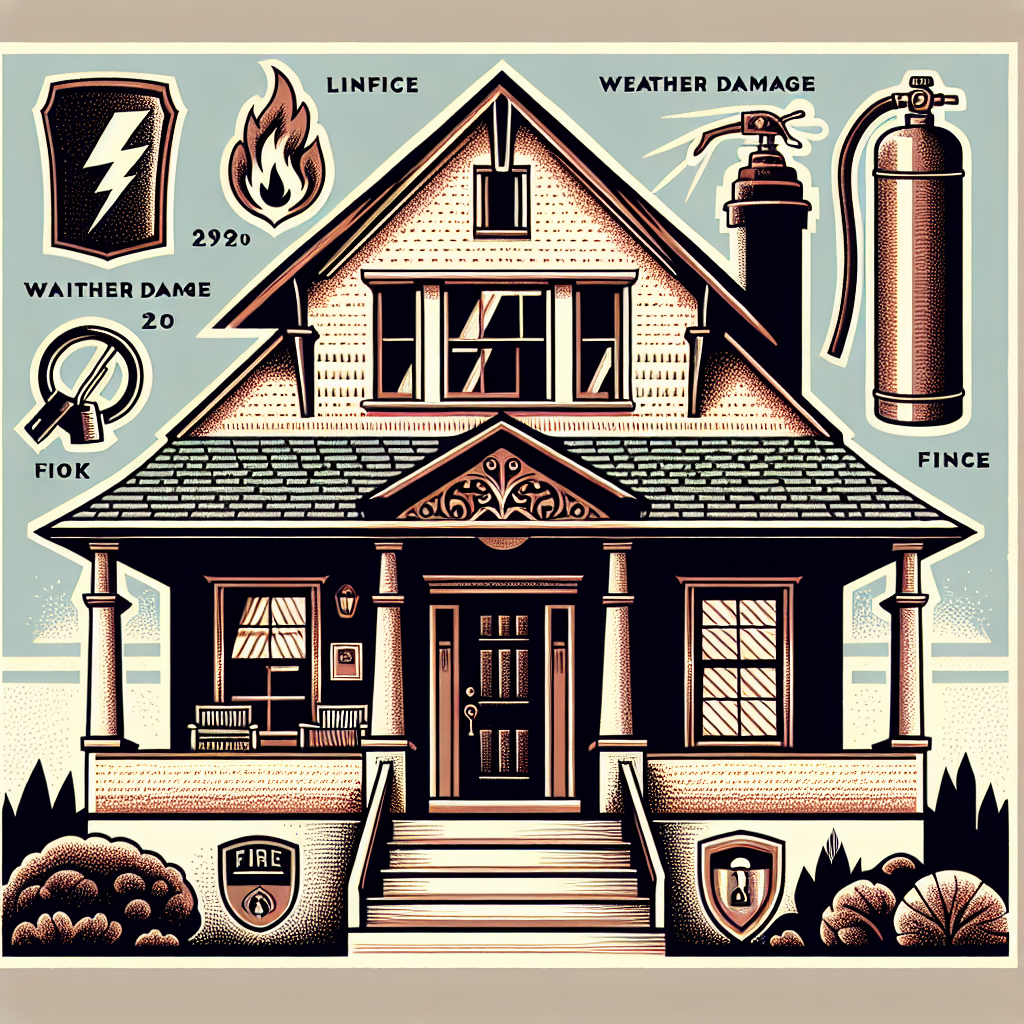Filed under Health Insurance on
Understanding Home Health Insurance Coverage Basics

In a rapidly changing world, understanding home health insurance coverage basics can make a significant difference in accessing essential services without a financial strain. Given the complexity of insurance policies, having a comprehensive grasp of the basics can act as a safety net in times of need. In this article, we'll dive into the nuanced world of home health insurance, clarify common misconceptions, and provide practical guidance, focusing particularly on home health coverage. Let's unravel the essentials so that you can make informed decisions for you and your loved ones.
What is Home Health Insurance?
Home health insurance is a subset of health insurance plans aimed at covering services that enable individuals to receive healthcare in their own homes. This type of insurance is increasingly essential for people seeking comfort and personalized attention while receiving medical care, without the hassle of commuting to healthcare facilities. Typically, this insurance supports services for chronic health conditions, post-surgery recovery, or temporary disability.
Home health coverage can encompass a wide range of services including but not limited to nursing care, physical therapy, occupational therapy, and medical social services. The coverage varies depending on the policy, the insurance provider, and, often, on state regulations.
Types of Services Covered by Home Health Insurance
Understanding what services are covered under your home health insurance plan is crucial. Generally, such coverage includes:
- Skilled Nursing Care: This involves medical monitoring, administration of medications, wound care, and other tasks that require a licensed nurse.
- Physical Therapy: Focuses on rehabilitation and improving physical function after injury or surgery.
- Occupational Therapy: Aims to enhance daily living and work skills, especially following strokes or serious injuries.
- Speech-Language Pathology Services: Helps in recovering speech or improving communication skills, often needed post-stroke.
- Medical Social Services: These services assist in counseling and securing community resources.
Determining Eligibility for Home Health Insurance Coverage
While understanding home health insurance coverage basics, one must also scrutinize the eligibility criteria. Typically, insurance companies require:
- A comprehensive medical report from a qualified healthcare provider stating the necessity for home health care.
- A detailed care plan established by a doctor outlining specific medical needs.
- Confirmation that the individual is homebound, or it is significantly challenging for them to leave home without assistance.
It's important to remember that coverage and eligibility requirements can vary significantly among insurance providers. Always carefully review your policy details and speak directly with your insurance representative to understand the specifics of your plan.
Limitations of Home Health Insurance Coverage
While home health coverage can be a critical support system, it does come with limitations that need careful navigation:
- Non-Coverage of 24-hour Care: Most policies do not cover round-the-clock home care services.
- Lack of Coverage for Personal Care Services: Daily living activities such as bathing, dressing, and meal preparation might not be covered unless they are part of skilled nursing care.
- Limited Coverage Periods: Home health services might be restricted to a limited period or a set number of visits per term.
Another essential aspect of understanding home health insurance coverage basics involves grasping these limitations. Knowing these potential out-of-pocket expenses can aid in preparing a more robust healthcare budget.
Navigating the Insurance Claim Process
To effectively utilize your home health insurance, you need to be adept at navigating the claim process:
- Ensure that your healthcare provider is in-network with your insurance plan to minimize costs.
- Maintain comprehensive records of all communications and services rendered to facilitate smooth billing.
- Familiarize yourself with your insurer's documentation requirements to prevent delays in claim processing.
- Submit claims promptly and track their status regularly to address any discrepancies instantly.
Real-Life Examples and Practical Advice
To illustrate how people effectively use home health insurance, let's consider Emily's story. After a severe ankle injury, Emily was prescribed a prolonged period of limited mobility. Utilizing her home health insurance, Emily secured a physical therapist who visited her thrice a week, aiding her recovery significantly without the need for repeated trips to a clinic.
Practical advice for anyone looking into home health insurance is to read the fine print. Often, insurance policies are dense and complicated documents. Dedicate time to understanding your coverage limits, deductibles, copayments, and out-of-pocket maximums. Occasionally, additional services such as medical equipment (e.g., crutches or a wheelchair) might be necessary, and you should verify if these are included in your insurance scheme.
FAQs on Home Health Insurance Coverage
1. What is the main difference between home health care and home care services?
Home health care involves professional medical services, while home care services focus on non-medical assistance like daily living activities. Not all insurance plans cover home care services unless aligned with home health care provisions.
2. How do I know if a particular home health service is covered by my insurance?
Check your insurance policy details, especially the sections outlining covered services. Contact your insurance provider directly for explicit confirmation if you have any doubts.
3. Can home health insurance cover long-term chronic care?
Most home health insurance plans are meant for short-term recovery. Long-term care insurance or Medicaid might be more suitable for extensive chronic care needs. Always verify the specifics with your insurance provider.
4. Is it possible to get home health services without a doctor's prescription?
Typically, a doctor’s prescription or recommendation is necessary to qualify for covered home health services. It justifies the medical necessity of the services being sought.
5. Can home health insurance coverage be used for mental health services?
It depends on the specific policy. Some home health insurance plans include coverage for mental health services through therapy or counseling, but this can vary. Reviewing your specific policy or consulting your insurance provider is advisable.
Understanding home health insurance coverage basics can significantly enhance your healthcare strategy. Armed with this knowledge, you can proactively manage potential healthcare needs, mitigate expenses, and ensure peace of mind. As with any insurance, the key lies in comprehensively understanding your plan and maintaining open communication with your healthcare providers and insurance representatives.





